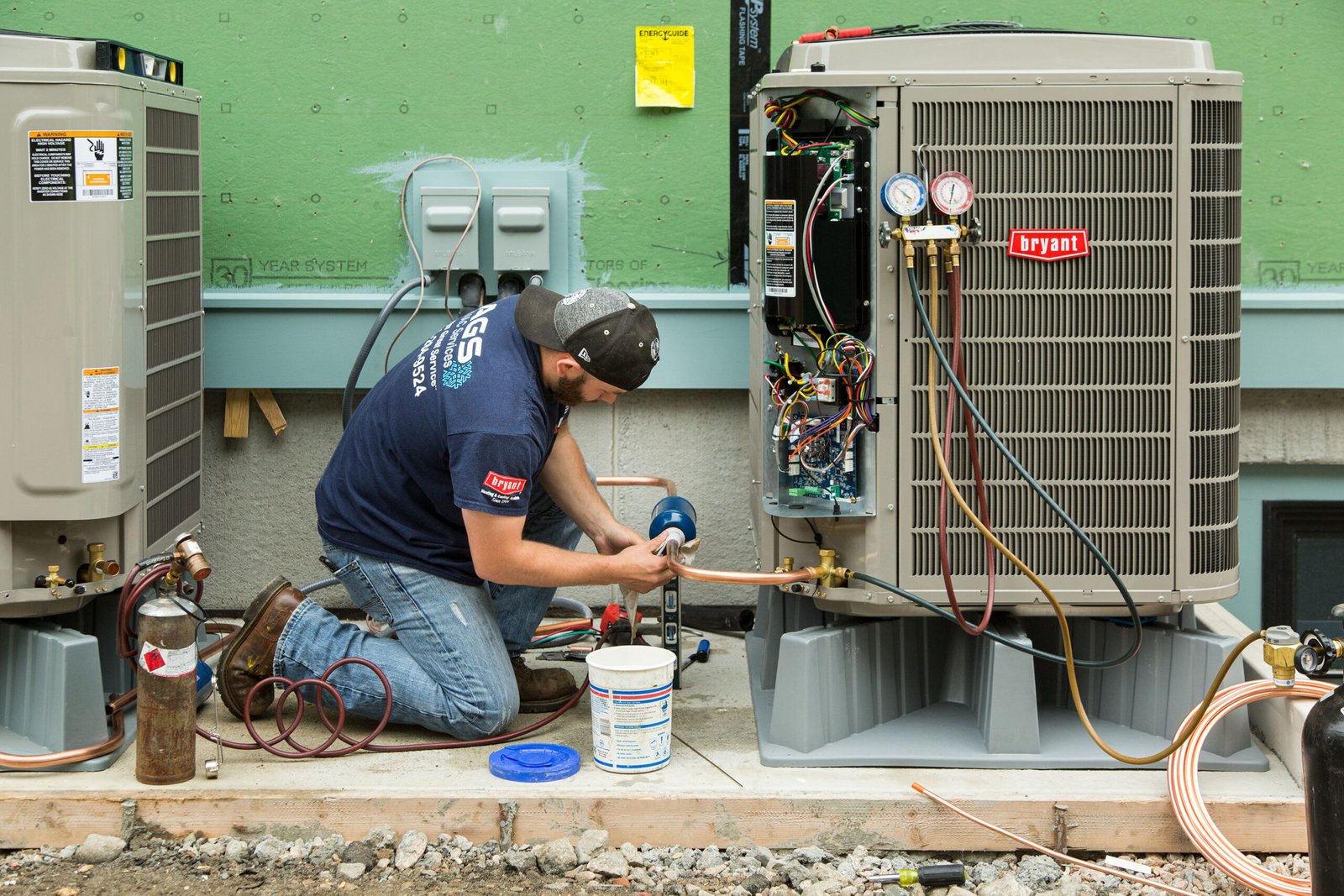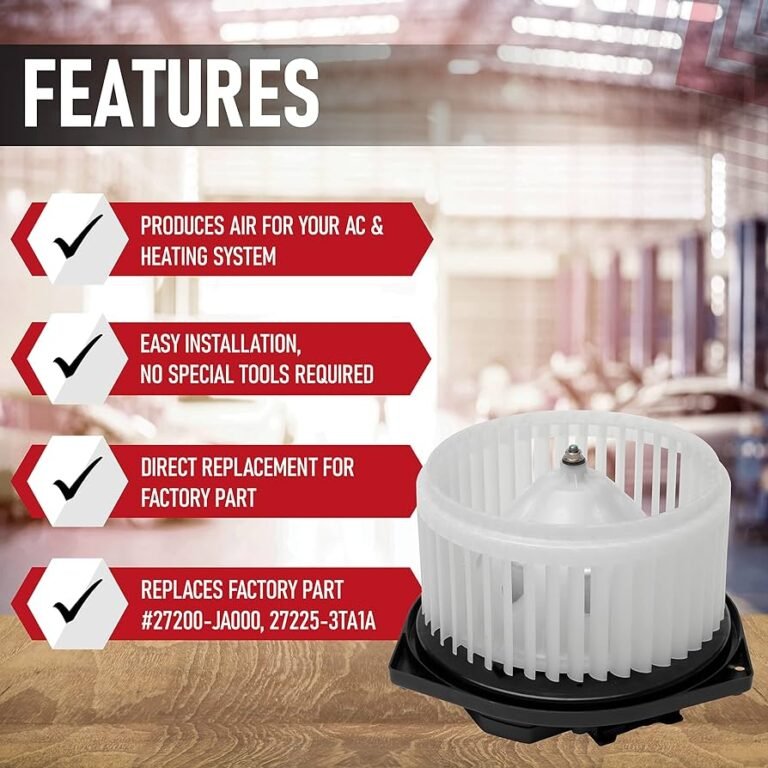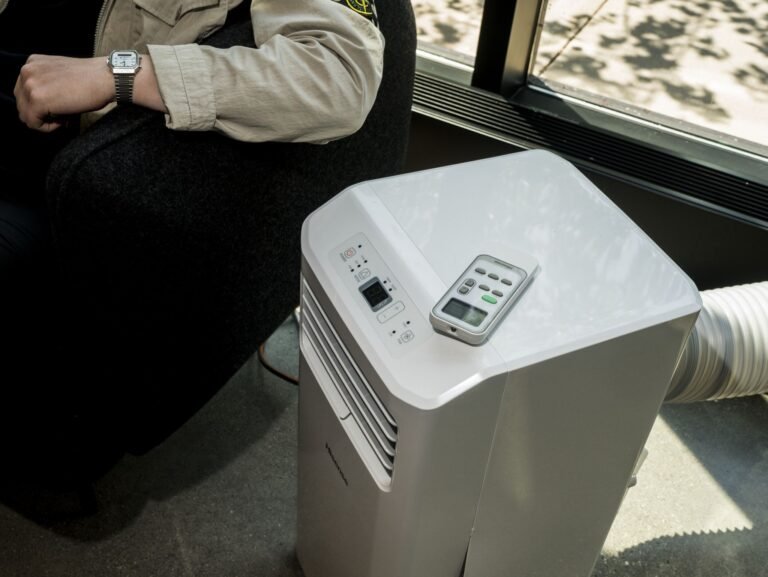How Much Does a Central Heat And Air Unit Cost: Unveiling the Affordable Options
The cost of a central heat and air unit can vary depending on the size and brand, with prices ranging from $1,774 to $7,450. This equipment is ideal for whole-house climate control, providing efficient and effective cooling and heating throughout the entire house.
Central air systems are highly efficient and require little maintenance, offering a long lifespan and consistent temperature control year-round. They also operate quietly compared to other forced air systems. It is worth considering the longevity and benefits of central air systems when determining the cost of installation.
Borrowing against home equity can be a cost-effective option for financing a new HVAC system. Overall, the cost of running central air is comparable to heating, and the key factor is energy efficiency.
Understanding The Cost Factors
Understanding the cost factors of a central heat and air unit is important when budgeting for one. Several key factors influence the cost of these units. One such factor is the unit’s size and capacity. The larger the unit, the higher the cost is likely to be. Additionally, factors such as the brand, energy efficiency rating, and additional features can also impact the cost. It’s important to consider these factors when setting a budget for a central heat and air unit.
When it comes to purchasing a central heat and air unit, the cost can vary greatly depending on the brand and specific model. In a search on Google Shopping, some prices range from $1,519.00 to $7,450.00. Online retailers such as HVACDirect.com, Ingrams Water & Air Equipment, and The AC Outlet offer various options with different price points. It’s also worth considering local stores like Lowe’s which offer units starting at $5,206.00. Reading customer reviews and ratings can help in making a well-informed decision.
Central heat and air units offer significant benefits such as whole-house climate control and energy efficiency. They require little maintenance and can keep the entire house at a consistent temperature year-round. Despite the initial cost, central heat and air units can be a worthwhile investment in the long run.
Affordable Options For Central Heat And Air Units
| Brand | Price Range |
|---|---|
| Complete HVAC System | $1,774.00 |
| Ingrams Water & Air Equipment | $3,450.00 – $4,225.00 |
| Green Leaf Air | $7,450.00 |
| The AC Outlet | $3,916.00 |
| HVACDirect.com | $3,140.00 – $4,168.52 – $3,555.00 – $2,555.00 |
Ducted central split units are ideal for whole-house climate control, providing climate control for multiple rooms and areas. These units use a network of air ducts, utilizing a single set of equipment. Some popular budget-friendly brands for central heat and air units include Complete HVAC System, Ingrams Water & Air Equipment, Green Leaf Air, The AC Outlet, and HVACDirect.com. Prices range from $1,774.00 to $7,450.00. These units offer efficient and effective cooling, requiring minimal maintenance and providing consistent temperature control throughout the house. They are known for their quiet operation and long-lasting performance. Investing in a central heat and air unit is definitely worth it, considering its efficiency and longevity.
Exploring Different Types Of Central Heat And Air Units
Ducted central split units: Ideal for whole-house climate control
|
Ductless mini-split systems: A cost-efficient solution for small spaces
|
Packaged units: All-in-one option for compact spaces
|

Credit: www.bloomberg.com
Maximizing Energy Efficiency On A Budget
Understanding the importance of energy efficiency in reducing long-term costs:
- Tips for choosing an energy-efficient central heat and air unit:
- Consider the energy efficiency rating (SEER) of the unit. Look for higher SEER ratings, as they indicate better energy efficiency.
- Look for units with the ENERGY STAR label, as they meet the strict energy efficiency standards set by the government.
- Consider the size of the unit. Oversized units may lead to wasted energy, while undersized units may struggle to adequately cool or heat your home.
- Investigate the unit’s maintenance requirements. Regular maintenance can help keep the unit operating efficiently.
- Consider the cost of installation. While more energy-efficient units may have a higher upfront cost, they can lead to long-term savings through reduced energy consumption.
- Government rebates and incentives for energy-efficient upgrades:
- Check with your local government or utility provider for available rebates and incentives for purchasing energy-efficient central heat and air units.
- These programs can help offset the initial cost of the unit and encourage energy efficiency.
- Research the eligibility requirements and application process to ensure you can take advantage of these benefits.
Factors To Consider During Installation And Maintenance
The cost of professional installation for a central heat and air unit can vary depending on various factors. On average, homeowners can expect to pay around $5,000 to $7,000 for the installation. However, it’s important to note that this cost can significantly increase or decrease depending on the size of the unit, the complexity of the installation, and the location. It’s recommended to consult with HVAC professionals and obtain multiple quotes to get an accurate estimate for your specific needs.
Regular maintenance is crucial for ensuring the optimal performance and longevity of your central heat and air unit. By scheduling annual inspections and servicing, you can catch potential issues early on and prevent costly repairs or replacements in the future. Maintenance tasks include cleaning or replacing air filters, inspecting and cleaning air ducts, lubricating moving parts, and checking refrigerant levels. It’s also important to keep the area around the outdoor unit clear of debris and vegetation to ensure proper airflow. Regular maintenance not only improves energy efficiency but also extends the lifespan of your unit.
While professional maintenance is recommended, there are some DIY maintenance tasks you can do to save money. Start by regularly cleaning or replacing air filters every 1-3 months, depending on usage. This improves airflow and reduces strain on the system. Additionally, check and clean the outdoor unit to remove any debris or dirt. Ensure that the thermostat is set correctly and consider using a programmable thermostat for optimal energy savings. Lastly, inspect the air ducts for any leaks or blockages and seal or clean them as necessary. These simple maintenance tasks can help improve the efficiency and performance of your central heat and air unit.
Frequently Asked Questions For How Much Does A Central Heat And Air Unit Cost
Is Central Heat And Air Worth It?
Yes, central heat and air are worth it. These systems are highly efficient, require little maintenance, and operate quietly. They can keep your entire house at a consistent temperature year-round. They are a long-lasting and effective solution for climate control.
How Long Should A Central Heat And Air Unit Last?
A central heat and air unit can last a long time without major upkeep due to its efficiency and low maintenance. These systems operate quietly and can keep the entire house at a consistent temperature year-round.
How To Afford A New Hvac System?
To afford a new HVAC system, you can consider borrowing against the equity of your home. This option offers lower interest rates since you use your home as collateral. Additionally, you can explore energy efficiency loan programs available in your state for cost-effective financing.
Is It More Expensive To Run Central Air Or Heat?
Central heating is generally more expensive to run than central air conditioning.
Conclusion
Overall, the cost of a central heat and air unit can vary depending on various factors such as the brand, size, and features. However, it is worth considering that central air systems are highly efficient and effective, requiring little maintenance and operating quietly.
They can keep the entire house at a consistent temperature throughout the year. To afford a new HVAC system, you may explore options like borrowing against the equity of your home. Ultimately, it’s essential to weigh the long-term benefits and cost savings when deciding on investing in a central heat and air unit.







